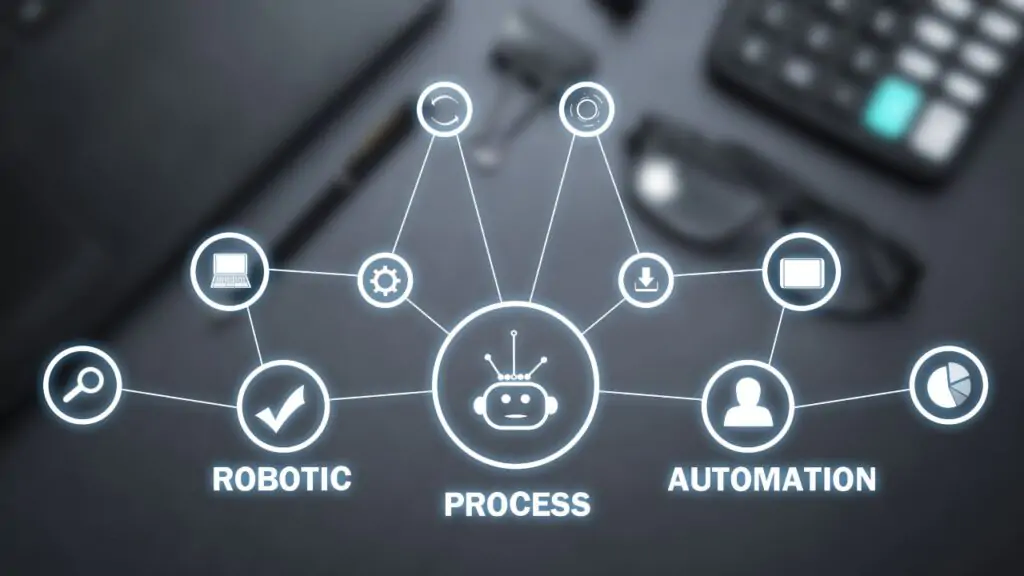How RPA (Robotic Process Automation) Can Help Your Business Succeed
Robotic process automation (RPA) is a disruptive innovation that is changing the way businesses automate their operations. Since RPA employs human-like movements to carry out repetitive tasks across systems and applications, it is more than just a technology; it represents a digital revolution in the workplace. Continue reading as we explore RPA’s complexities, its impacts on different industries, and its future potential to transform business processes.
Beginning Real-World RPA Operations
Robotic process automation (RPA) relies on software robots, or “bots,” to enable machines to do repetitive, rule-based tasks once performed by people. These automated programmes may communicate with other computer systems, access various applications, input data, perform calculations, and handle financial transactions. The growing importance of robotic process automation (RPA) in the digital economy has led to its evolution from automating simple operations to managing complex processes and choices.
The Function of Robotic Process Automation in Contemporary Businesses
In the contemporary business landscape, RPA has emerged as a cornerstone of digital transformation strategies. By automating mundane tasks, businesses may increase operational efficiency, decrease expenses, and do away with human mistakes. Automated process automation (RPA) has several uses beyond cost reduction; for example, it allows workers more time to concentrate on strategic, creative, and customer-facing tasks.
A Quick Rundown of RPA and Its Functions
Robotic process automation (RPA) mimics human interaction with digital technology to automate commercial activities. Robotic process automation (RPA) bots can be taught specific workflows, modify data, trigger responses, and communicate with other systems. Deploying a bot involves planning out the procedure, configuring it, testing it, and finally running it live.
An overview of robotic process automation and the benefits it offers
Robotic process automation (RPA) is characterised by its non-intrusive nature, which allows it to leverage existing infrastructure without modifying or replacing systems. Scalability, improved accuracy, compliance, and customer satisfaction are just a few of its numerous benefits. Because of its compatibility with legacy systems, RPA is highly valued by industries that have invested much in their IT infrastructure.
Robotic process automation: its uses in several industries
Among the numerous fields that have discovered applications for robotic process automation are:
- Automated process automation (RPA) allows banks and financial organisations to streamline tasks like loan processing and fraud detection.
- Healthcare organisations can automate appointment scheduling and billing processes with the help of RPA.
- The retail and industrial industries can both benefit from RPA’s ability to streamline inventory management and supply chain processes.
Things to Consider and Potential Issues with RPA Implementation
Implementing RPA is not without its challenges, such as assuaging employees’ concerns about job security and privacy, despite the technology’s many benefits. Thorough preparation and involvement of all relevant parties are necessary to overcome these challenges.
What the Future Holds for Robotic Process Automation
Bots will be able to handle more complex tasks and make decisions based on predictive analytics once RPA incorporates AI and ML. This will be the future of RPA. This convergence is leading to RPA apps being more integrated into business operations.
How to Implement Robotic Process Automation Without a Hitch
A company’s RPA installation can only be supported by well-defined strategies, attainable goals, and ongoing optimisation and monitoring. Consulting with seasoned RPA partners who can provide advice and guidance during deployment could be a great assistance.
Common Concerns Regarding RPA
How is RPA different from other types of automation?
Since RPA does not require coding or integration with existing systems, it may be implemented more quickly and with less hassle than traditional automation methods.
Is the capacity to learn and adapt something that RPA bots can accomplish?
Unlike traditional RPA bots, those that use AI and ML can learn from their errors and improve their decision-making abilities over time.
Will RPA be useful for small businesses?
By tailoring RPA to their specific requirements, small businesses can boost efficiency and competitiveness without breaking the bank.
What is the typical cost to implement RPA?
The price is influenced by numerous factors, such as the complexity of the procedures and the quantity of bots utilised. This investment has the potential to yield substantial returns in two areas: reduced effort required and improved accuracy of outputs.
Robotic process automation: the future of success
Robotic process automation (RPA) helps businesses of any size and in any industry enhance productivity, save costs, and stay ahead of the competition in today’s digital marketplace. Further development and integration with AI and ML will unleash RPA’s limitless potential to change company processes. Embracing RPA helps businesses get ready for the digital age, not just for now, but for the future as well.
This Article is sponsored by Living Animal









